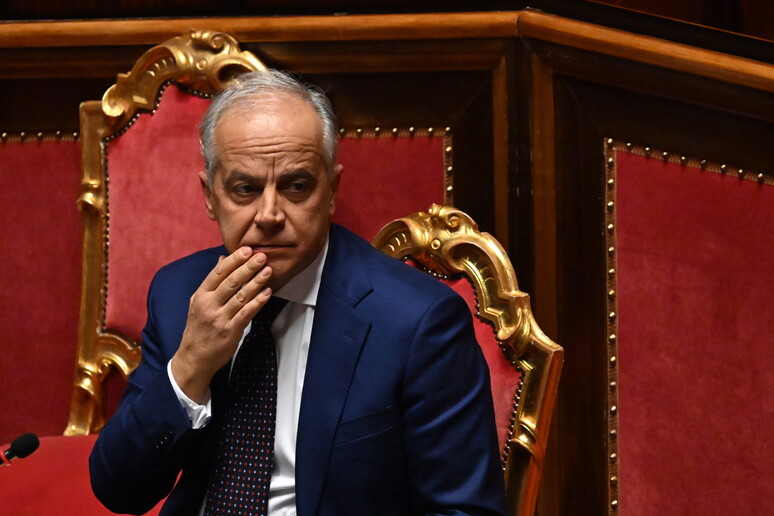Libyan police chief Najeem Osema
Almasri Habish, wanted by the International Criminal Court (ICC)
for war crimes, was expelled from Italy after his dtention was
quashed on a technicality because he is a dangerous man,
Interior Minister Matteo Piantedosi told the Senate Thursday
over a case where the opposition has called on Premier Giorgia
Meloni to explain why an alleged rapist, murderer and rapist was
freed, and the ICC is seeking an explanation too.
"Almasri Habish was released on the evening of January 21 and
then repatriated to Tripoli, for urgent security reasons, with
my expulsion order, given the dangerousness of the subject,"
Piantedosi told Question Time in the Upper House.
"The government has given its availability to provide more
detailed information on the case in question. "That will be a
useful opportunity to delve deeper and report on all the stages
of the affair, including the timing regarding the request,
issuing and execution of the international arrest warrant, which
then matured at the time of the Libyan citizen's presence in
Italy".
Almasri was flown back to Tripoli on a State flight and landed
among jubilant supporters.
Piantedosi went on to explain that once Almasri had been freed
because he was deemed too dangerous to hold, he had to be flown
home immediately.
He said this had been the most appropriate measure after the
failure, on a technicality, to validate his arrest.
"Following the failure to validate the arrest by the Court of
Appeal of Rome, given that the Libyan citizen was 'at large' in
Italy and presented a profile of social danger, as emerges from
the arrest warrant issued on 18 January by the International
Criminal Court, I adopted an expulsion order for reasons of
State security" pursuant to the law, the minister told the
Senate.
"The order was notified to the interested party upon release
from prison and, on the evening of 21 January, he left the
national territory".
For Piantedosi, expulsion at that time "was the most appropriate
measure, also due to the duration of the re-entry ban".
ALL RIGHTS RESERVED © Copyright ANSA











